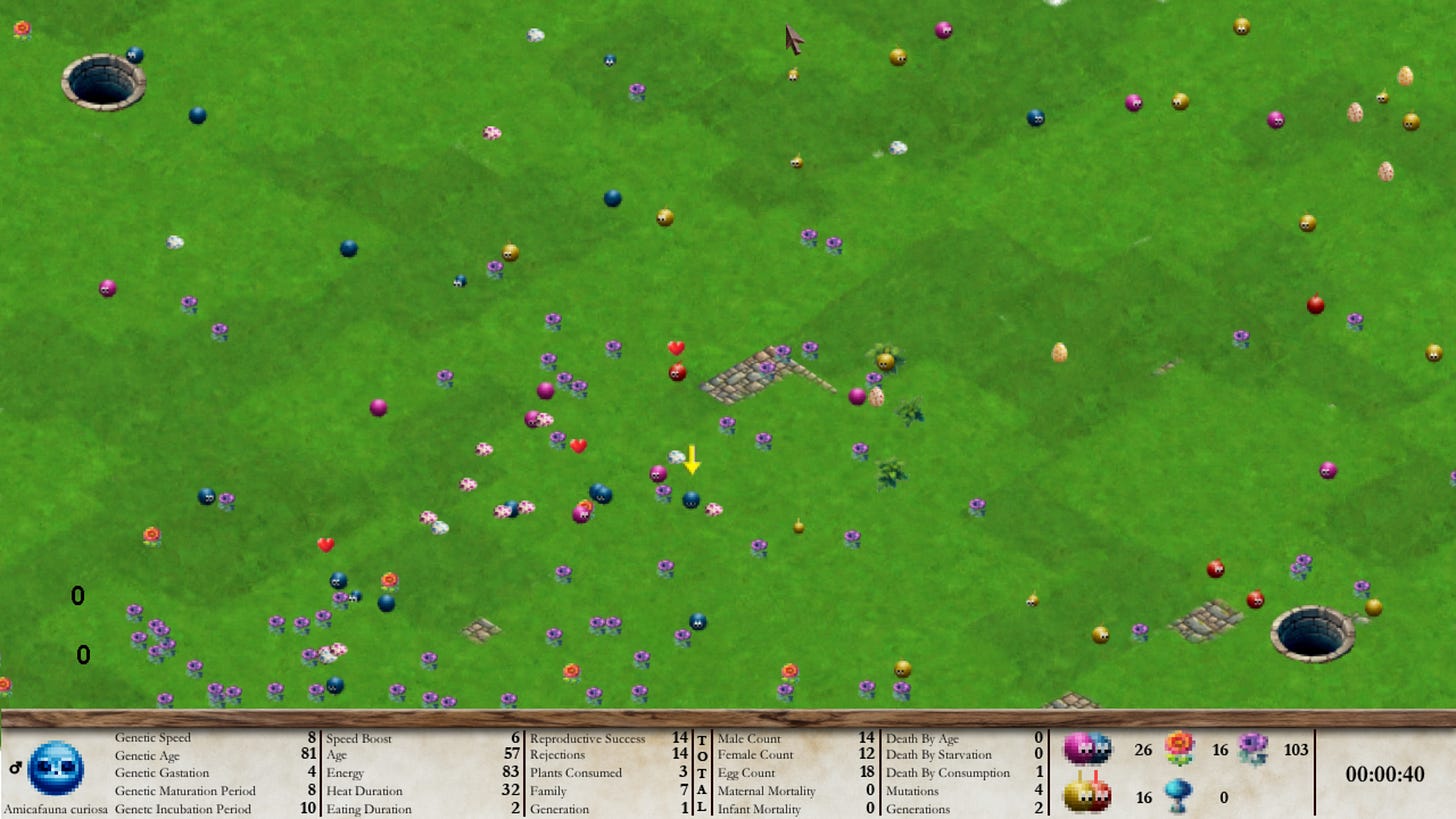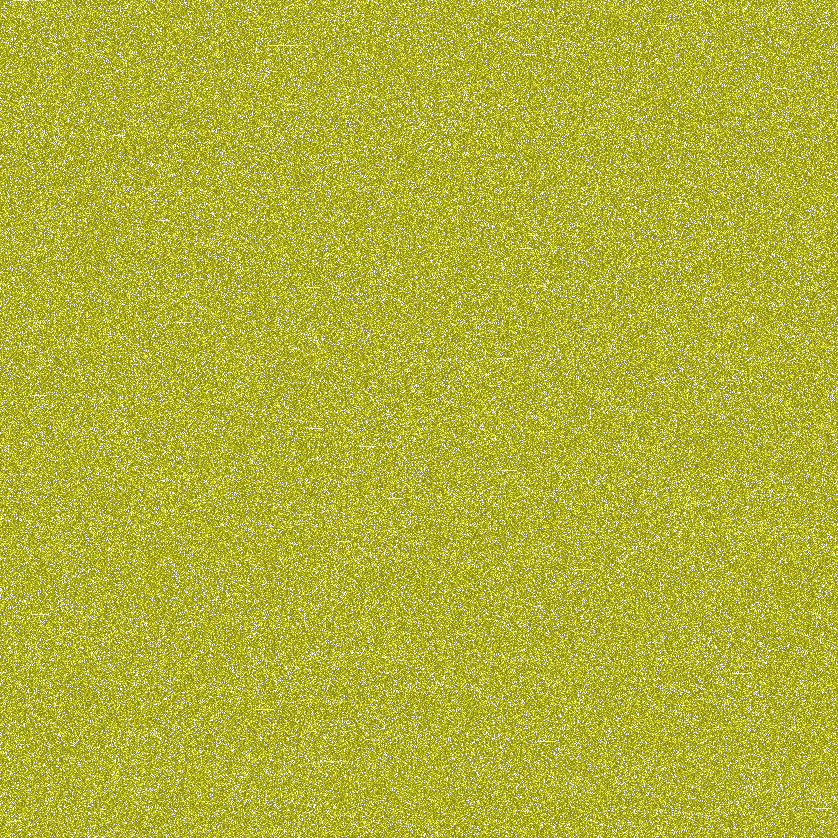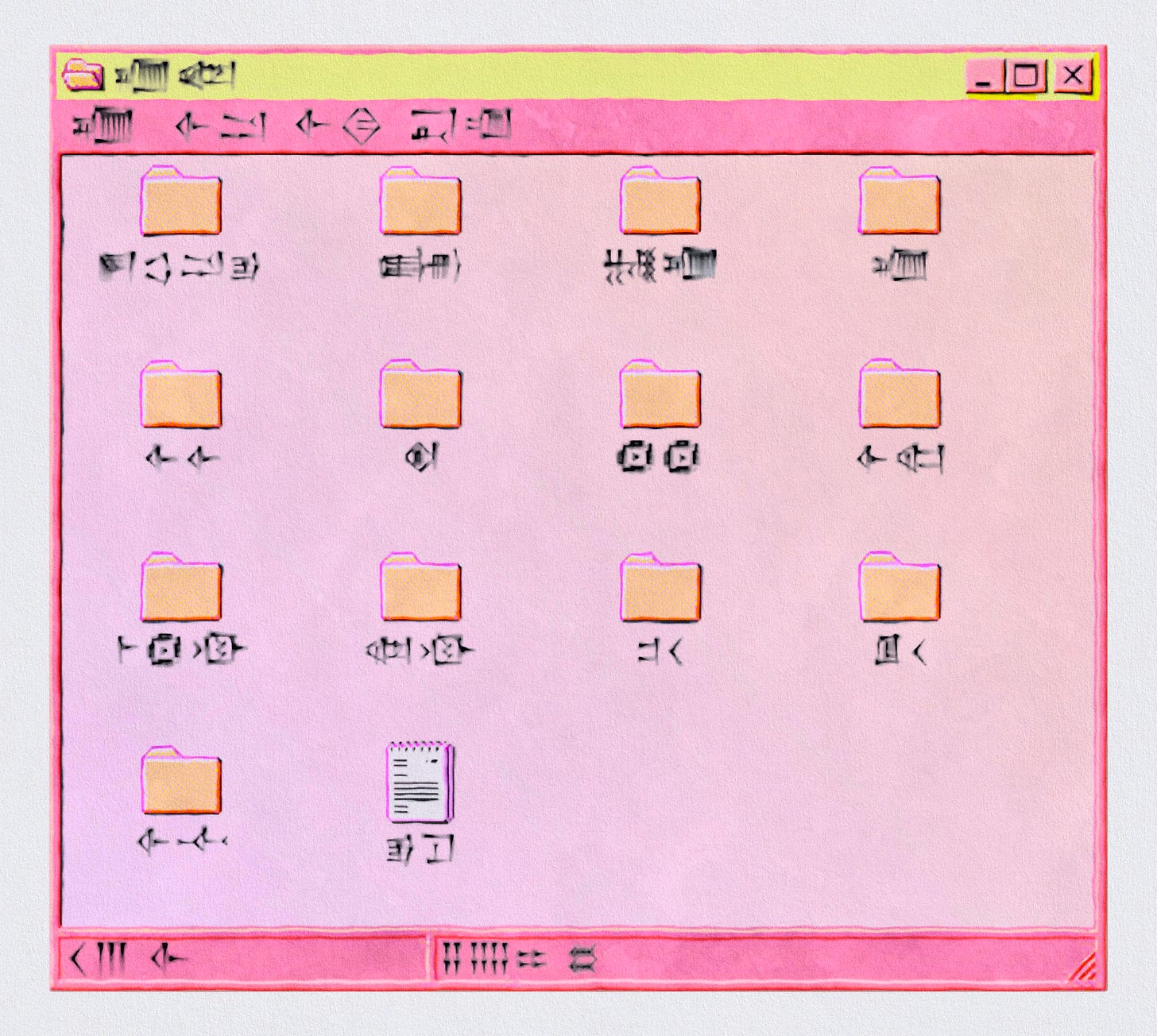Update #1
Newsletter
Dear reader,
I hope this newsletter finds you well. For a long time, I haven’t made much noise on social media, but I thought I should change that and start providing you with some weekly updates on my various projects and thoughts.
Fictional writing
I have a long list of novels I plan to write. Right now, I'm working on one called The Great Derealization. It's a science fiction novel set on New Year’s Eve in the year 2222. The story follows a group of teenagers wandering the dusty streets of Phoenix, beneath the towering steel skeletons of the abandoned arcology project known as New Phoenix.
The novel explores themes of perception and trust in an age where reality itself is in question. It reflects present-day concerns about fake news and AI-generated content. In the world of the novel, trust has eroded not only in screens but in one’s own eyes. Fully immersive simulations have made it difficult to distinguish the real from the artificial.
While it has some conceptual overlap with The Matrix, the book draws more directly from early epistemological skepticism and Nick Bostrom’s simulation hypothesis. It’s also influenced by A Clockwork Orange by Anthony Burgess (a novel I prefer over the film), particularly in how it plays with language.
In the story’s future setting, climate change has already passed its peak, submerging large parts of South Asia and triggering mass migrations toward the West. As a result, English in this version of the United States has blended with Bengali—a language I find both fascinating and sonically rich. Although I don't speak Bengali myself, I’m working with a friend who does in order to make the linguistic aspects feel authentic.
The story originally began as a short piece I published on r/nosleep a few years ago. It only gathered around 60 upvotes before the Reddit moderators took it down for violating one of their overly strict rules (a topic I might write more about someday). Still, I doubt it would have gained much more attention even if it had stayed up. I didn’t decide to expand it into a novel because it was wildly popular; I just happened to fall in love with the concept.
The Great Derealization won’t be a particularly long novel—I’m aiming for around 50,000 words. Personally, I believe most novels should be shorter rather than longer. Too many books today feel unnecessarily drawn out, often to meet traditional publishers’ expectations rather than the story’s actual needs. Of course, some narratives truly require a larger canvas, but in general, I think most would benefit from being trimmed to somewhere between 50,000 and 100,000 words. This project is no exception.
Right now, the manuscript sits at 30,000 words. At my current pace of about a thousand words a day, I expect to finish the first draft in around twenty days. Editing will likely take another month or two, so don’t expect the final version to be ready for publication any sooner than three months from now.
My next project is a novel based on my story about the lost city of Utgård (originally titled Korona—until the pandemic gave that word an unfortunate new meaning). I’ve been tinkering with the concept for years but never quite found the right angle. That said, I do have a very rough 100,000-word manuscript, and I believe there’s still something worthwhile in it. It will need a complete rewrite, but I think it’s finally time to stop putting it off. A few people have been asking when the book will be out, and honestly, I’m a bit embarrassed it’s taken this long. But unless something unexpected gets in the way, it will get done.
Game Development
After releasing Erumpo: Infinite Breakout—an endless runner disguised as a classic breakout game—I’ve returned to an earlier project called Heredity (pictured above), an isometric ecosystem and evolution simulator. I started working on it last year but had to pause due to performance issues: the frame rate dropped dramatically once the populations grew too large.
Recently, I stumbled on a simple fix: culling half the population once it exceeds a certain threshold. It’s an obvious solution in hindsight, though I was initially reluctant to implement it. I had hoped the ecosystem could function without artificial constraints. But in the end, I realized it’s better to finish the project with limitations than to let it sit unfinished on my hard drive. So, Heredity is back in development.
The game actually began as a screensaver I made way back in 2006 using the old Click&Play engine, The Games Factory. It even won “Game of the Week” over at The Daily Click. The concept was simple: you watched a species of herbivores bounce around, eat, mate, and lay eggs. Each session ended with their extinction, and the survival time was added to a high score list.
The new version, Heredity, still leans on that simplicity. I only recently got back into game development, so I’m not much more advanced than I was back then—but this version includes more species, more complex behaviors, and actual game mechanics.
The idea is to create a cozy, observational clicker. You’ll follow various organisms as they live out their lives, tracking their stats, while performing light interventions, like using lightning to stop trolls from stealing eggs or zapping UFOs that try to abduct your creatures. You’ll also be able to stop viruses from spreading, either with medicine or, again, lightning.
There’s a small shop as well, where you can buy lightning bolts, medicine, and seeds using picked flowers as currency. I might add a few extra features over time, but the game isn’t meant to be much more complex than that. Part of that is due to my limited expertise; pushing the complexity too far would make the gap between vision and execution feel obvious. And partly, it’s because others have already created similar, more advanced games—like Equilinox and The Bibites: Digital Life—in ways I can only admire.
So, I’m keeping the scope manageable and focused, without stretching myself too thin. We’ll see how it turns out. The release date is still undecided, but most of the work is already done. All that’s left is implementing the final interactive elements.
Art
Lately, I’ve been struggling with my art—it’s been difficult to feel truly satisfied with anything I create. Most of the pieces I’ve shared online haven’t gained much attention, though there have been two exceptions. The first one (pictured above) was generated using code that sampled my latest novel, The Color Yellow, and mapped each character to a color value based on the book’s themes. Essentially, it created a kind of substitution cipher, where each pixel represents a single character from the novel, including spaces and punctuation.
This piece received around 260 upvotes on r/writing, though subreddits focused solely on visual art were less impressed. Still, it’s one of the few works I genuinely feel connected to, and I’m looking forward to printing it.
The second exception to my recent difficulties making art was a piece titled Windows 3000 BC (pictured above), which I shared on r/VaporwaveAesthetics. For that piece, I used an old screenshot of a folder I took back in the year 2000 as a reference image. I then added cuneiform glyphs that, based on my research, roughly correspond to typical folder names like “games” and “writing.”
To my surprise, it received 257 upvotes and a few appreciative comments, though there were also a couple accusing the entire piece of being AI-generated, which was a bit discouraging. The Great Derealization does seem to be well underway. Anyway, the vaporwave style is something I’d like to explore further. Still, I’ve started to wonder if visual art is really my strength. My hope is to one day find a method or style I’d actually be proud to hang on my own wall. So far, with a few exceptions, I haven’t quite gotten there. But I’ll keep going.
Philosophy
I’m currently working on a series of philosophical essays. My goal is to explore various topics in depth, study them thoroughly, and articulate my own thoughts along the way. I’m under no illusion that these ideas will be groundbreaking or even original. For me, it’s more of an intellectual exercise, a way to stay engaged with the field and keep my thinking sharp.
My academic background and early career were rooted in philosophy, but over the past few years, I’ve drifted away from that side of myself. These essays are an attempt to reconnect. Right now, I’m writing a piece on epistemology and its limits, where I’m trying to steer a path away from solipsism without falling into naïve realism or relying on ad hoc definitions of knowledge. Whether or not I succeed in saying something meaningful, it’s been a rewarding way to reacquaint myself with the discipline. Hopefully, I’ll have something to show soon.
Side Notes
In addition to my personal projects, I’ve recently expanded my subreddit, r/odd_directions (now with over 28,000 members), into a Substack publication. There, a group of featured authors—myself included—publish one short story every week. So far, we’ve gathered around sixteen subscribers, but I’m hopeful it will grow into something much bigger. The goal is to make Odd Directions more accessible beyond Reddit and build a dedicated space for readers who enjoy horror, weird fiction, and dark science fiction.
If that sounds like your kind of thing, I’d love for you to check it out and subscribe.
As always…
Thanks for reading. Every message, comment, and bit of encouragement truly helps keep me going. If you enjoy what I make, feel free to share it with a friend, or just keep lurking quietly in the background. I see you, and I’m grateful you're here.
And if you’ve read this far, there’s a good chance you might enjoy what I’m building. If you'd like to support my work more directly, you can do so over on Patreon. Every contribution, no matter how small, helps me spend more time creating stories, art, and games. Plus, you’ll get access to behind-the-scenes updates, early releases, and whatever odd extras I come up with.
Thanks again for being part of this.
Warmly,
Tobias




